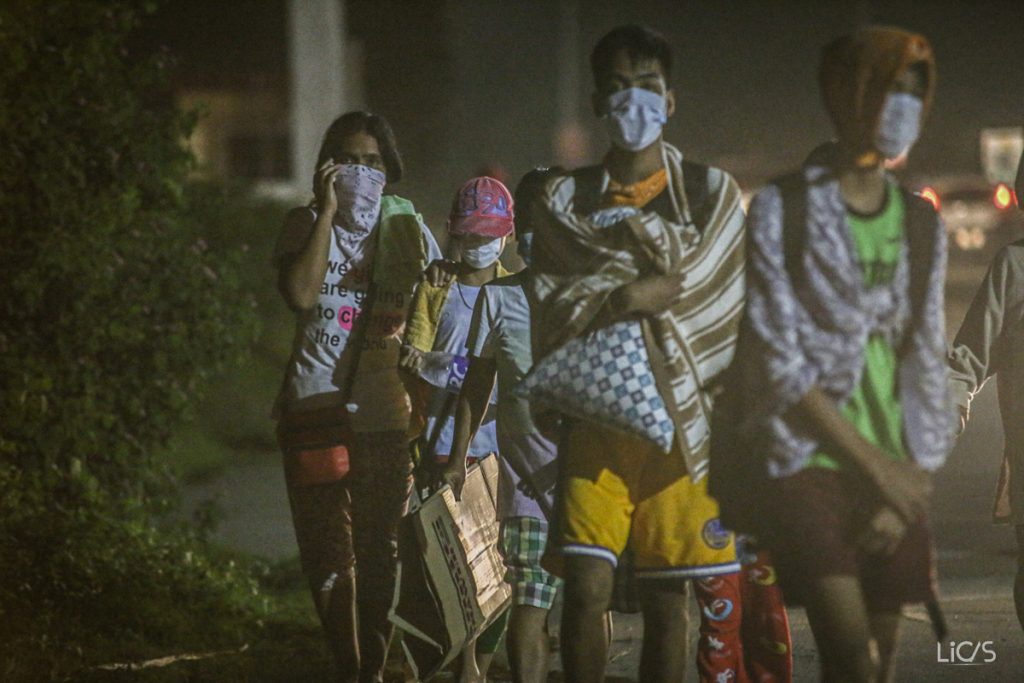
Days before New Year, everyone’s getting ready. They said it would be stressful to go with the crowd, and it’s better to prepare early.
The only occasion I’ve been waiting for this year is the 31st of December. Let’s face it, 2020 is a year we wouldn’t be delighted to look back to. It’s “Annus Horribilis,” a year of disaster.
The year started with wildfires, deaths, like that of Kobe Bryant, earthquakes and volcanic eruptions. It was the longest January for many. But it was just an introduction.
The arrival of the coronavirus pandemic grouped people into two: the infected and the affected. Survivors shared stories of discrimination, near-death experiences, but also of hope in quarantine facilities.
The affected are those whose lives were impacted by the pandemic, people who lost loved ones, jobs and livelihoods, those who have undergone emotional and mental problems and similar challenges.
I’ve fought battles in 2020, and it made me entirely a different person from who I was 12 months ago.
While working on my graduate thesis in 2019, I attempted to leave my comfort zone and sought teaching opportunities. For an academic year, I learned a lot. I witnessed the rapid change of culture among the youth.
The things started to collapse when Taal Volcano in Tagaytay erupted. I was organizing a retreat for my students and put a lot of effort to make it memorable and significant for them. We were scheduled to have it in Batangas. I had to move it a month later. The pandemic took over our plans. The retreat never took place.
Some co-teachers found it hard to adjust to the online teaching and learning mode. Frequent meetings and online transactions added to our burdens. By the end of the semester, the shortage of students forced the school to lay off a number of employees.
I thought I could cope immediately, but I failed. Through the year, I encountered challenges, incidents that I thought would only happen in fiction. I could only wish, this year would the last horrible period in human history.
I saw “elements” of the Sorrowful Mysteries of the Holy Rosary in the Year 2020.
What I thought would be the longest January appeared to be a preparation for more hardships to come. It was akin to the agony of Jesus in the Garden. It was the longest night of his life when he had to sweat blood due to stress. He prayed a lot to his Father.
Based on the accounts of the scourging of Jesus in the Pillar, he experienced severe torments. Our experience of the lockdown could be nothing to what Jesus experienced while tied to a column. We were deprived of our freedom to move. We could not go to places we used to visit. We were all tied to our homes.
The crowning of thorns symbolize our mental health and our anxieties, our severe depressions. Jesus’ carrying of the cross illustrates the burdens people carried this past year. The results of the community quarantine was a journey to mount Calvary.
Like Christ, we carried our crosses — the cross of unemployment, the cross of worries, the cross of losing loved ones who succumbed to the virus, and the cross of loneliness.
The crucifixion brought darkness to the lives of many people. On Mount Calvary, only few friends stood with Jesus. This year, good friends were there, ready to catch us when we fall. Mary and the beloved disciple were the family and friends who stayed.
Many of us, like Jesus on the cross, might have cried this year “My God, my God, why have you forsaken me?”
As 2020 comes to a close, may the sorrowful mysteries be replaced with the glorious ones.
Let us join the Pentatonix in singing:
“Tonight, the apple falls in Time
We’ll sing along with Auld Lang Syne
And throw confetti high up into space
Tomorrow morning when we wake
This town will be a different place
And the past will wash away like coffee stains”
Aside from the threats of the new coronavirus, we also fought our respective battles. It might be a year of miseries, but hopefully it is also a year of “temporaries,” of temporary life and livelihoods, temporary friends, temporary love to some, and temporary sorrows of the past year.
Adrian Banguis-Tambuyat is a young communication practitioner specializing in online content strategy and broadcast journalism. His interests are focused on social justice, youth formation, communication theology and mass media evangelization.
Source: Licas Philippines
0 Comments